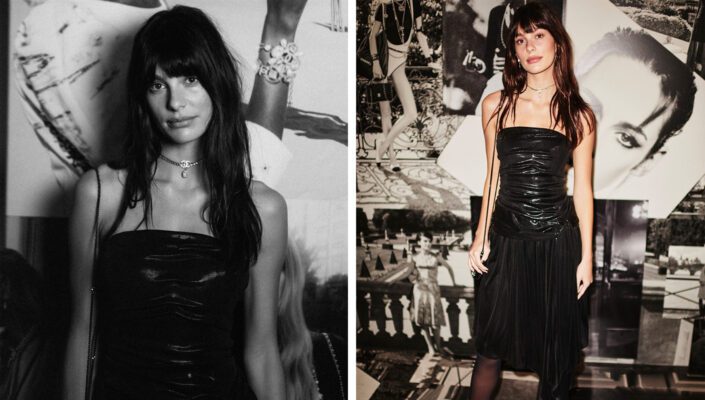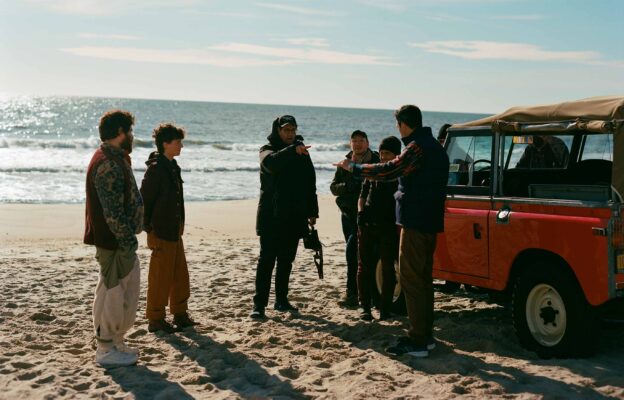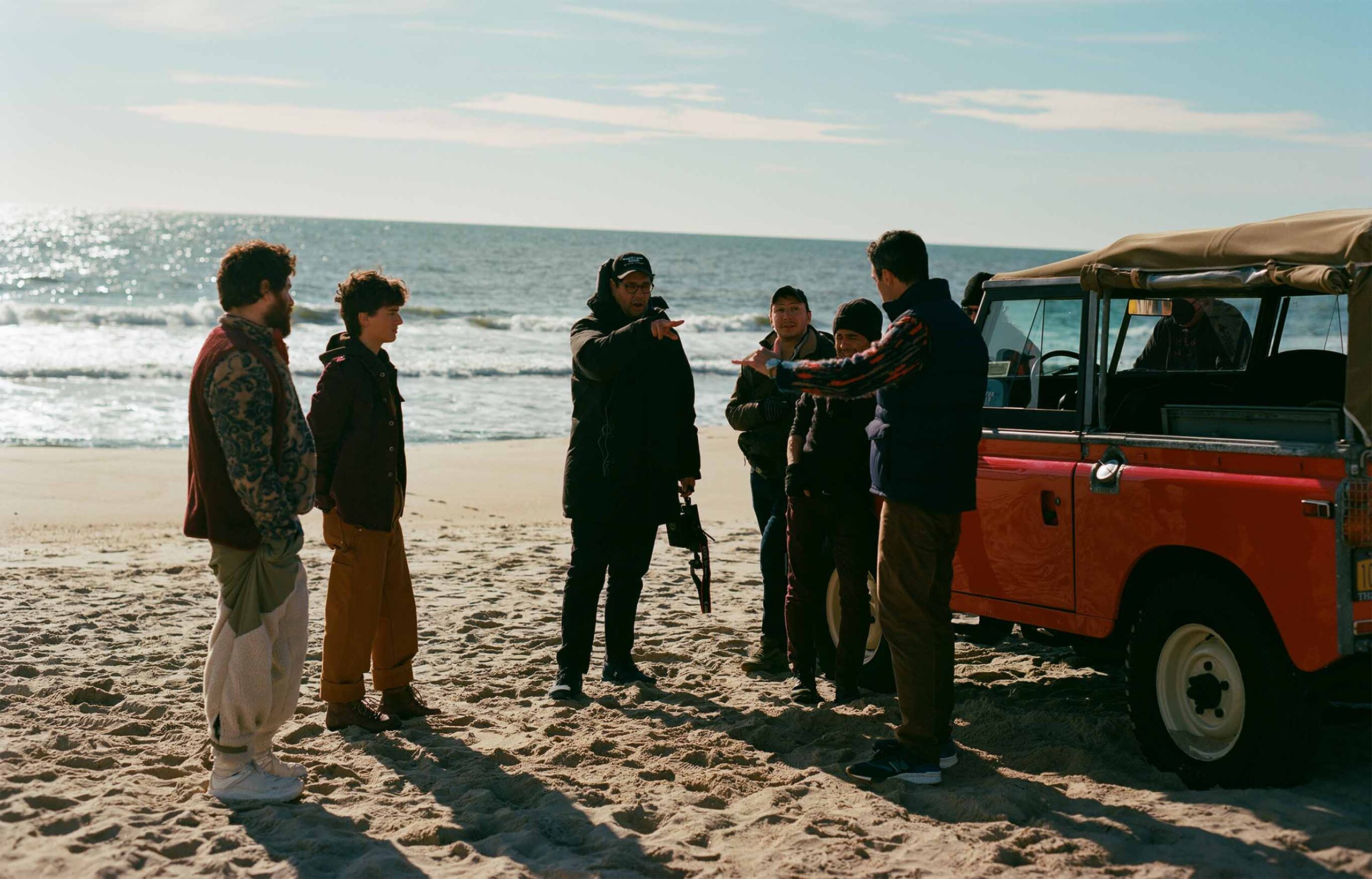
Director Xavier Manrique with the cast of ‘Who Invited Charlie?’
COFFEE WITH
XAVIER MANRIQUE: “I’D LIKE TO GET STORIES OUT THERE WITH POSITIVE MESSAGING”
Name: Xavier Manrique
Profession: Film director, photographer
Birthplace: Guayaquil, Ecuador
Zodiac sign: Scorpio
Instagram: @xavimanrique
LATINNESS: Xavi, What was your first memory with cinema?
XAVIER: I grew up playing tennis in Miami, and during the summer when it rains, they’d take us to the movies two times a week. I remember going to a theater in Coral Gables called The Riviera or to the Miracle Center, which had a TGI Friday’s. It was a treat for us to go.
I remember driving by, and you’d have to crane your neck to see the letters of what’s playing, or we’d call Moviefone. Those were my earliest memories, just going in the summers a lot, all the blockbuster movies were out and it was a treat in between playing sports.
LATINNESS: Last time we were in touch, you worked at MTV Networks in Miami. I was interning at the same time as you. Remember?
XAVIER: Yeah, I started off there. I was in the editing department doing promos for VH1 and MTV, like Hogan Knows Best and The Fab Life. I’d put the promos together, translate them and put them in Spanish as MTV Latin America.
LATINNESS: Later we ran into each other in LA. You took us to a crazy studio party…
XAVIER: I think Snoop Dog was playing that night!
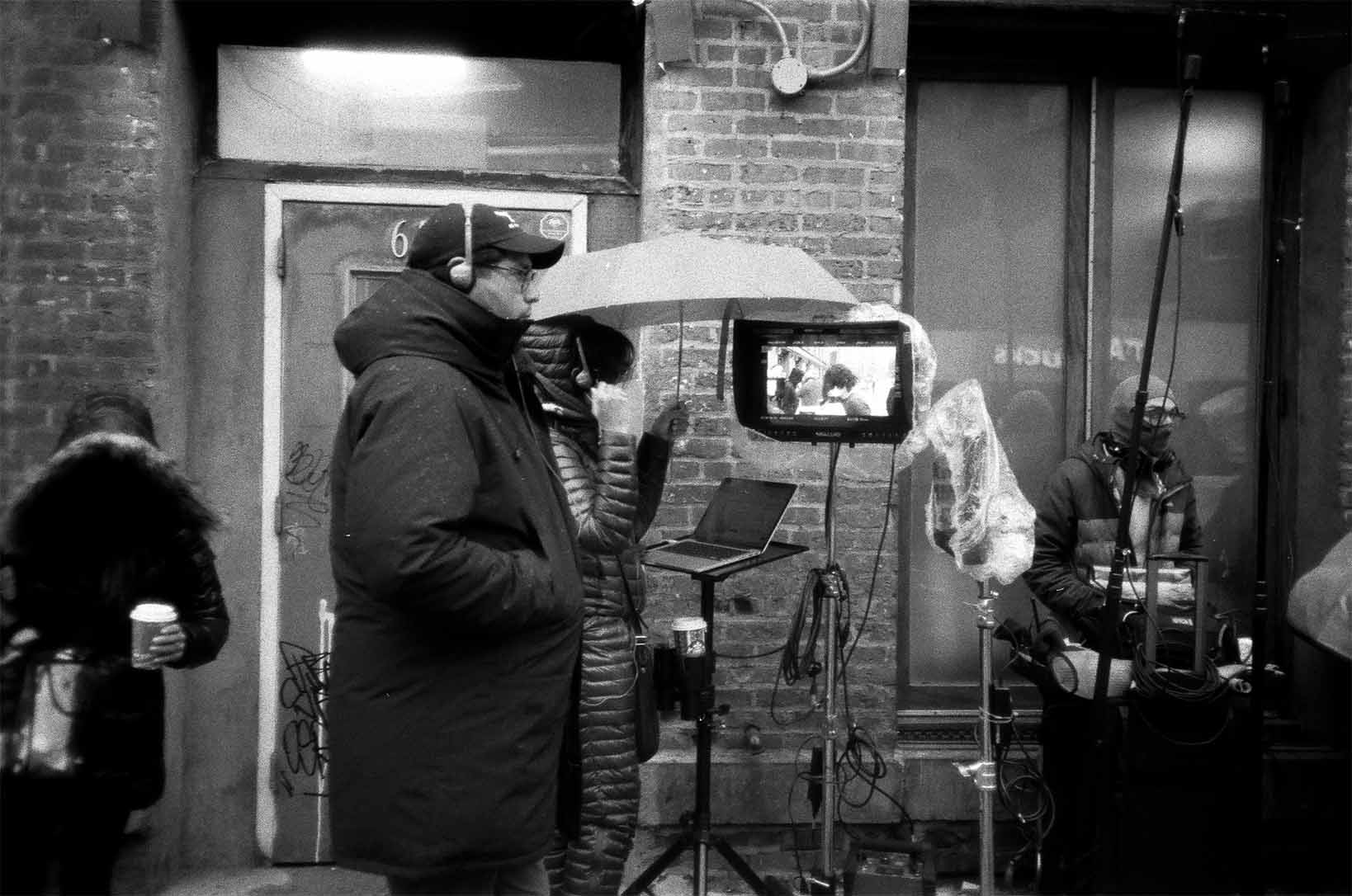
Manrique on set.
LATINNESS: So since then, it seems you were already inching your way towards film. When did you decide you wanted to take that career path?
XAVIER: Yeah, I always loved films, and knew then that there was either something I really loved about it or something really wrong with me, because I could watch movies over and over and over, and would find something new to look at.
My undergraduate was at GW (George Washington University), where I studied Finance and Marketing. I had nothing to do with film until that summer internship. My friend Diego was working, and he had to go on a trip, so he told me: “Listen, they actually pay for interns here. Do you want to come join us? I can teach you how to edit real quick so I can go on my vacation and you cover me?” I was like, “Perfect, let’s do this!”
There I met one of my first mentors, Ricardo de Montreuil. He was doing a film called La mujer de mi hermano for which he needed help with cutting the trailer. Diego and I would just cut trailers for him. He knew we were green and willing to do whatever it took. He really took a liking to us, and saw the talent in both of us.
One day he said “Listen, I just got a job in Los Angeles at Mundos. Would you like to come on as an editor/producer? You’ll be able to grow your reel. We’ll have a lot of talent there that’ll be willing to work with you guys. It’s a way to grow.” We said “Absolutely!” So we ended up in LA, and that’s when we saw you.
When he wanted to do his second movie, he told us, “If you guys can help me come up with some of the funds, you can produce it.” Diego and I hit the streets and basically raised the funds for his second film called Mancora. It did very well in the festival circuit. That was the beginning of my film career. I thought everything was going to be like “Wow! We’re 23 years old and doing all this…” But there was a lot of learning after that.
LATINNESS: Such as?
XAVIER: We were about to release Mancora at the Miami Film Festival. It was our last serious stop. My friends were like “There’s this guy who says he’s shooting some dog movie with Owen Wilson and Jennifer Aniston in Miami. He claims to have directed The Devil Wears Prada.” I didn’t think it was possible that he lived in Miami, but I looked it up and it started to add up.
He was a tennis fanatic who had played Division I tennis, like I did, at Harvard. I met him on the tennis court as he was finishing up filming Marley and Me. After that, I think we’ve played tennis every day since. He became my mentor and has taken me everywhere with him in God knows how many movies since 2008. He paved the way.
Now he’s executive producing my projects. He’s an Oscar-winning director by the name of David Frankel. If it weren’t for him, I don’t know if I’d still be here, to be honest.

Film photography by Xavier Manrique.
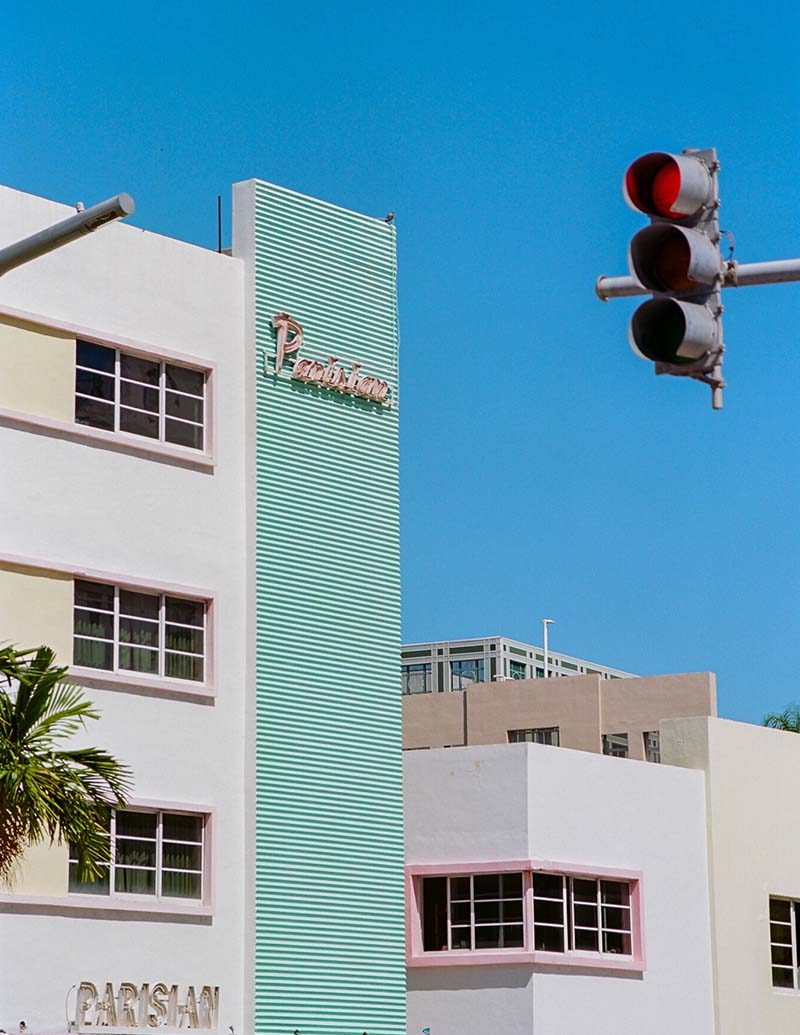
LATINNESS: Wow! We’re always interested in hearing about the role of mentors in creative careers. For you it was pivotal then?
XAVIER: Absolutely. These indie films, at times, are harder than studio films, but just the exposure to studio films and seeing how they work is a great education. I think everyone needs to do their hours on set. It can be 18 and 20 hour days, but they’re definitely educational and everyone needs to earn their stripes.
LATINNESS: It’s interesting to hear that. We’ve experienced changes in the fashion world recently where few people want to earn their stripes. With instagram everyone is famous and successful. Would you say it’s impossible to become an overnight success in the film industry?
XAVIER: No, it’s not impossible. I’m sure everything is possible, but I think that as far as having the know-how and the experience of what happens on set, it’s important. There are so many moving parts. In a studio film, every department has maybe 50-60 people under them, and there’s around 10 different departments, right? So it’s just about understanding exactly how this huge machine works.
Yeah, you can figure it out and do it on an iPhone, and have this amazing story that hits— I’m sure that happens. More often than not though, you don’t even have to go to film school, if you do your hours on set, you just learn how things move.
LATINNESS: What’s the most beautiful part of the filmmaking experience for you?
XAVIER: Every part has an experience you’re wow’ed by. Yet, when it all comes together… when you’re sitting in a room where the music is making the audience feel a certain way, it’s manipulating them with the shots you’ve chosen, and it all comes together— all of the senses, with visual and audio— and it’s doing what you hoped it would do on page, for me, the score part of it is like, “Holy shit! I just did this.”
That’s the wow moment. You don’t know if it’ll work or not, but you definitely feel proud. It’s like “Wow, this was just on ink and paper a few years ago.”
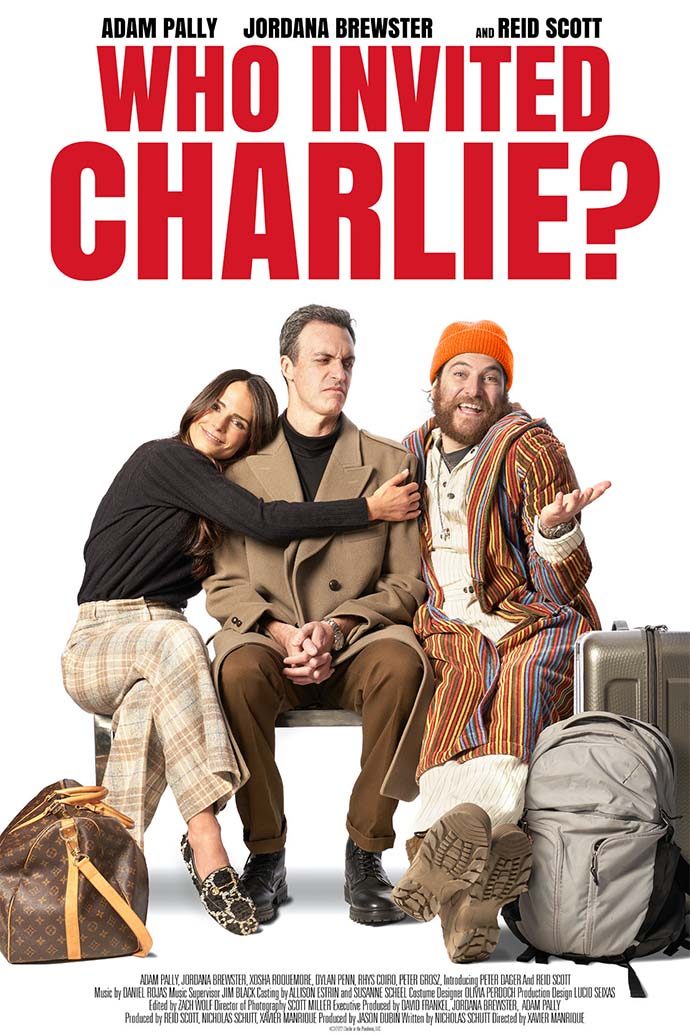
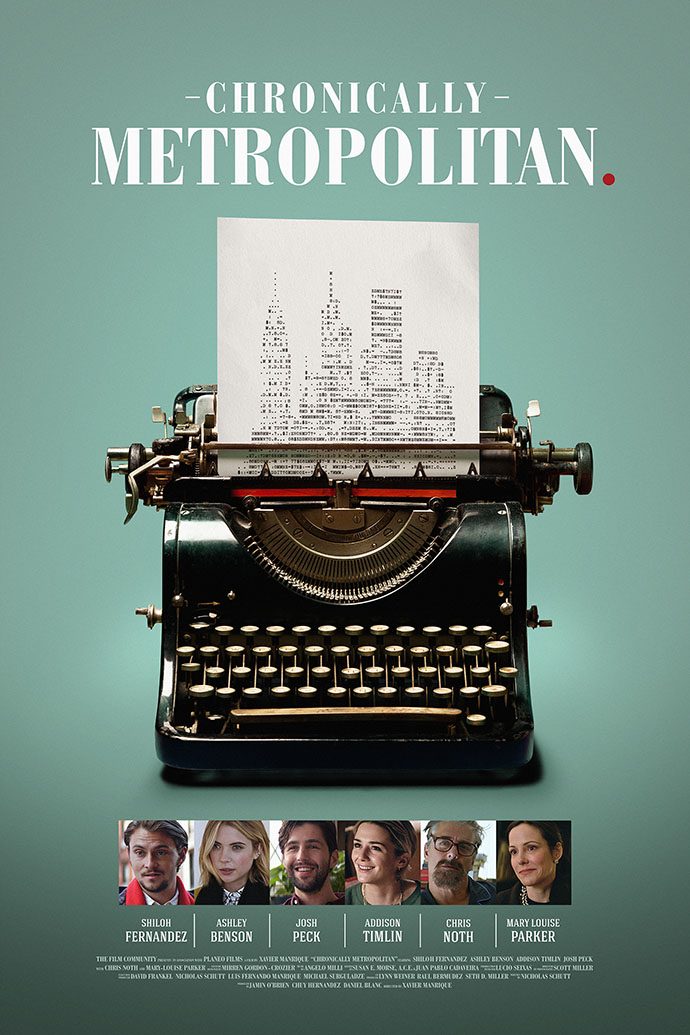
LATINNESS: On that note, tell us about the recent release of Who Invited Charlie? How did it all come about?
XAVIER: It was through a friend of mine, Nicholas Schutt, who wrote my first film Chronically Metropolitan. We always wanted to work together again, but it took three years of figuring it out.
He went to quarantine somewhere in Virginia, where he became Charlie— he was a house guest that they couldn’t get rid of. He’s a larger than life character who’s always having fun, drinking, hanging out or being very loud.
He said “Listen, I think I found a way to use the script we have that’s set in the Hamptons with quarantine and the pandemic as the impetus, but that’s it. We’re not going to really lean into any political side, no one is going to get Covid. It’s just going to be the genesis of the story. Then it’s all about a family being torn apart until this guy, who is the last person they ever expect to heal the family, comes in and mends all the broken relationships.” I said “All right, cool. Let’s go.”
He gave me the script in February 2020, and by October, we were already in pre-production. It was a quick turn around. My first film took five years to make; this one took eight months.
LATINNESS: What was it like filming on set during the pandemic?
XAVIER: We shot between two variants: Delta and Omicron. We had to shoot it quickly, we shot the whole thing in almost 19 days. Thankfully we were all in a hotel in East Hampton, in our own little bubble.
We were the last production to do so. The SAG (Screen Actors Guild) was trying to shut us down every day, telling us it wasn’t safe, but we pushed back. We were like “No, we’re testing every day. We’re fine.”
I knew the minute we shut down for safety, the actors would go do their stuff and other movies, and then it’s hard to get them back. So thankfully, we kept testing negative and we cranked it out. If one person would’ve tested positive, the movie would’ve shut down for sure.
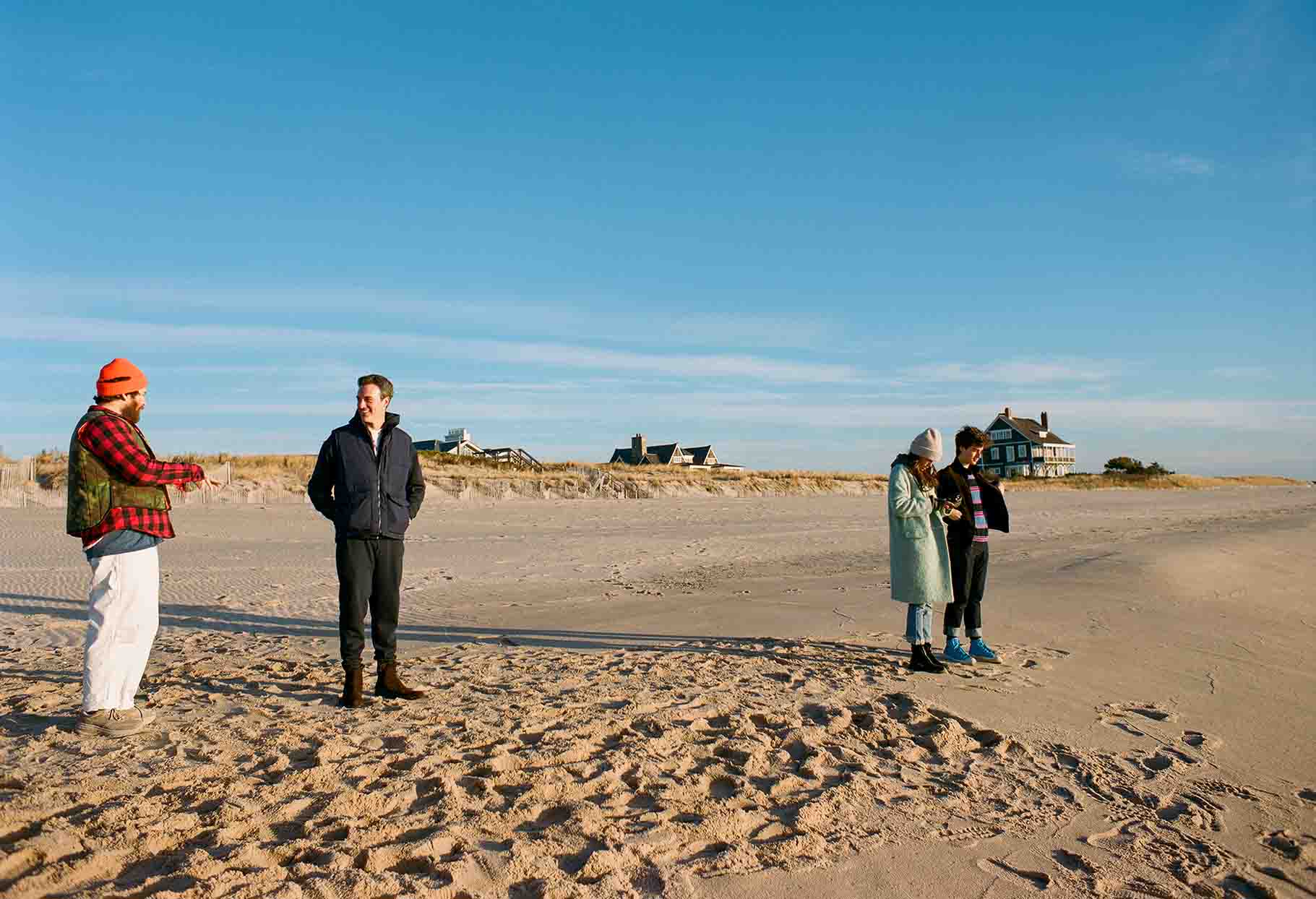
On the set of ‘Who Invited Charlie?’ in East Hampton.
LATINNESS: So before this film there was Chronically Metropolitan, which had an impressive cast of characters. Was that your first film?
XAVIER: Yes, my first film as a director, the second as a producer. It was a great success. Universal Pictures picked it up and it’s on Netflix now, so it had a nice run.
LATINNESS: What’s your casting process like?
XAVIER: So in Charlie, what no one really realizes, is how I always try to find a way to put my Latin influence into it. Jordana Brewster, she has a last name that’s American, but she’s Brazilian. Her mom is Brazilian, I think her dad’s American.
Also, the kid we found, when he was auditioning, I heard him say “tattoo” with an extended “a”. I looked at his name, and thought “Peter Dager? This dude is from Miami for sure.” I heard it again, I replayed it, and it turns out his name is Peter Lopez. He has a Venezuelan mom, Cuban dad, and I think he went to Belen then to New World— full out Miami.
He got me with the Dager last name. I told him, “C’mon, you’re Lopez. We’re hot now!” So basically, I try to go back to the roots and see how we can add a little bit of Latin flavor in everything I do.
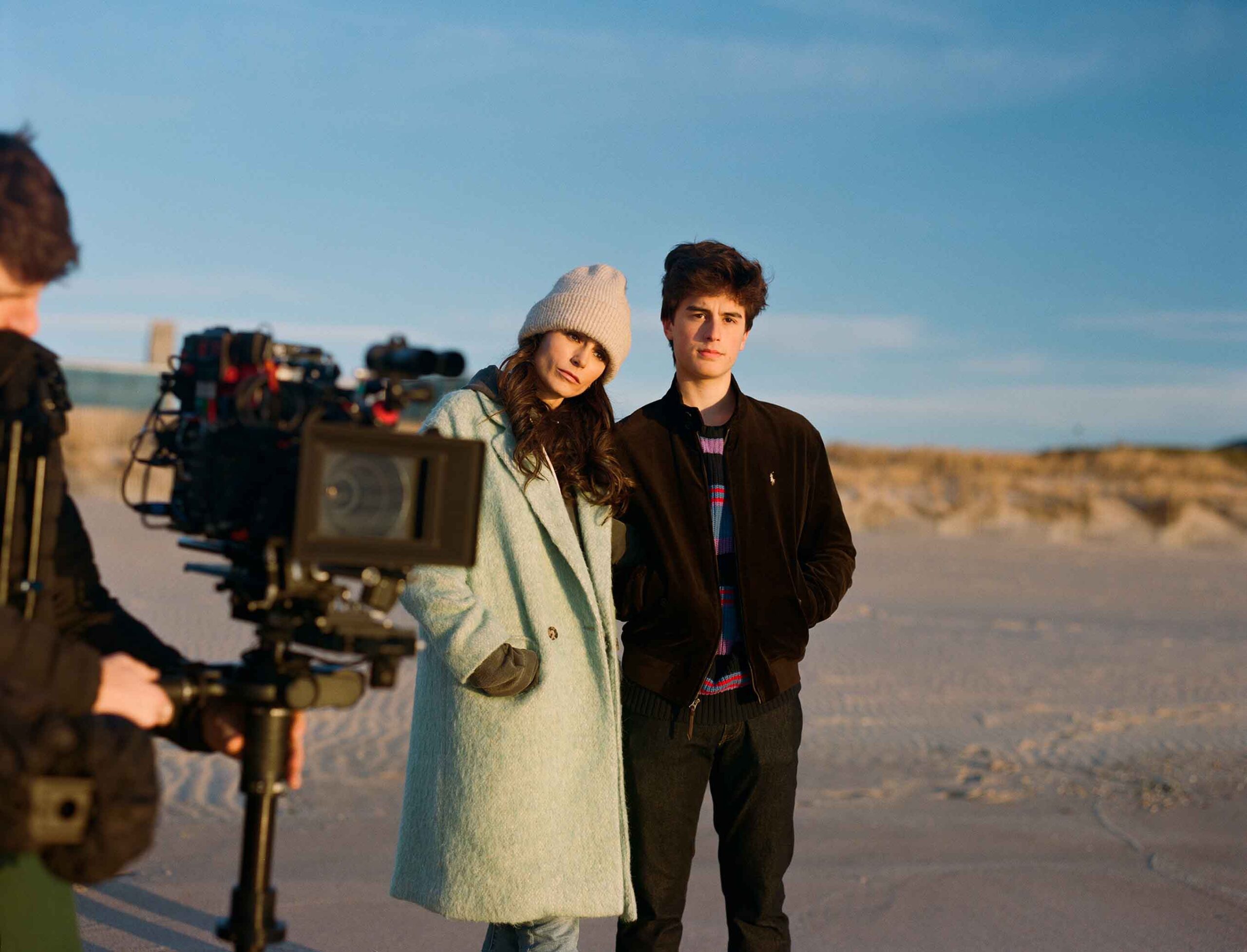
Behind the scenes with Jordana Brewster and Peter Dager.
LATINNESS: You have an upcoming film in Oaxaca. Can you tell us about it?
XAVIER: It’s vice versa to a fish out of the water story about this type A, high-strung girl from New York who just works to live. Everything is all about work with no time for herself. Now imagine the 180 of that— if you take her to a place that’s all about enjoying food, talking and conversation. It’s the coming-of-age of someone who’s not used to that.
We paralleled this fisherman parable from Mexico in which there’s a businessman who says to the fisherman, “Why don’t you make a business from all the fish that you catch?” And the fisherman responds, “For what? Why do I need the money? I can do the same thing I’m doing now and enjoy my life.”
We took that, deconstructed it and created a story about someone who is highly-strung that has an opportunity to acquire a mezcal company in Oaxaca and ends up staying there. She doesn’t want to go back to New York, she falls in love with the location, the culture, everything. It has a beautiful message and a silver lining to it.
We’re casting now, and hopefully, should be in Oaxaca by July.
LATINNESS: How much of yourself is present in your films?
XAVIER: Zero. Well, as far as the art side, the behind the camera stuff, I grew up on film photography, and going back to our roots– I love bright, saturated colors, so all that’s in there.
As far as the story is concerned, I’ve yet to have a film that’s about me. There’s a lot of influential stuff, like music. On Charlie, there’s a Costa Rican composer that we made the music with, and I pulled a lot from music I love. Maná is in there. Those are all things that influence my movies, but I’d say just behind the camera stuff.
LATINNESS: What inspires you?
XAVIER: Music, photography, art, a lot of museum artwork. Today, just stories that I’d like to get out there with positive messaging. Most of the things I like to do are feel good. That’s what I’d like to do with this company called Blind Bulldog, just feel good movies, either dramas or rom coms for the most part. I’d like to keep a light message on it.



Scenes from Miami, Florida, shot on film by Xavier Manrique.
LATINNESS: You’re based in Miami, which isn’t Hollywood. How have your surroundings influenced your creativity, and why are you staying in Miami?
XAVIER: I love Miami. You can’t get me out of here. I’ve done my stints in LA and New York and I love them both, but home is home.
Just being here is a good break. I can dive into whatever location there is, but just being here inspires me. I get most of my ideas walking around and being in nature, at the beach. Miami is home, it feels comfortable and I can really create here.
LATINNESS: So if you weren’t a filmmaker, what would you be?
XAVIER: Part of me wanted to go into fashion. I really love fashion, especially in cinema, where you can have a certain character pop or influence their mood with what you see.
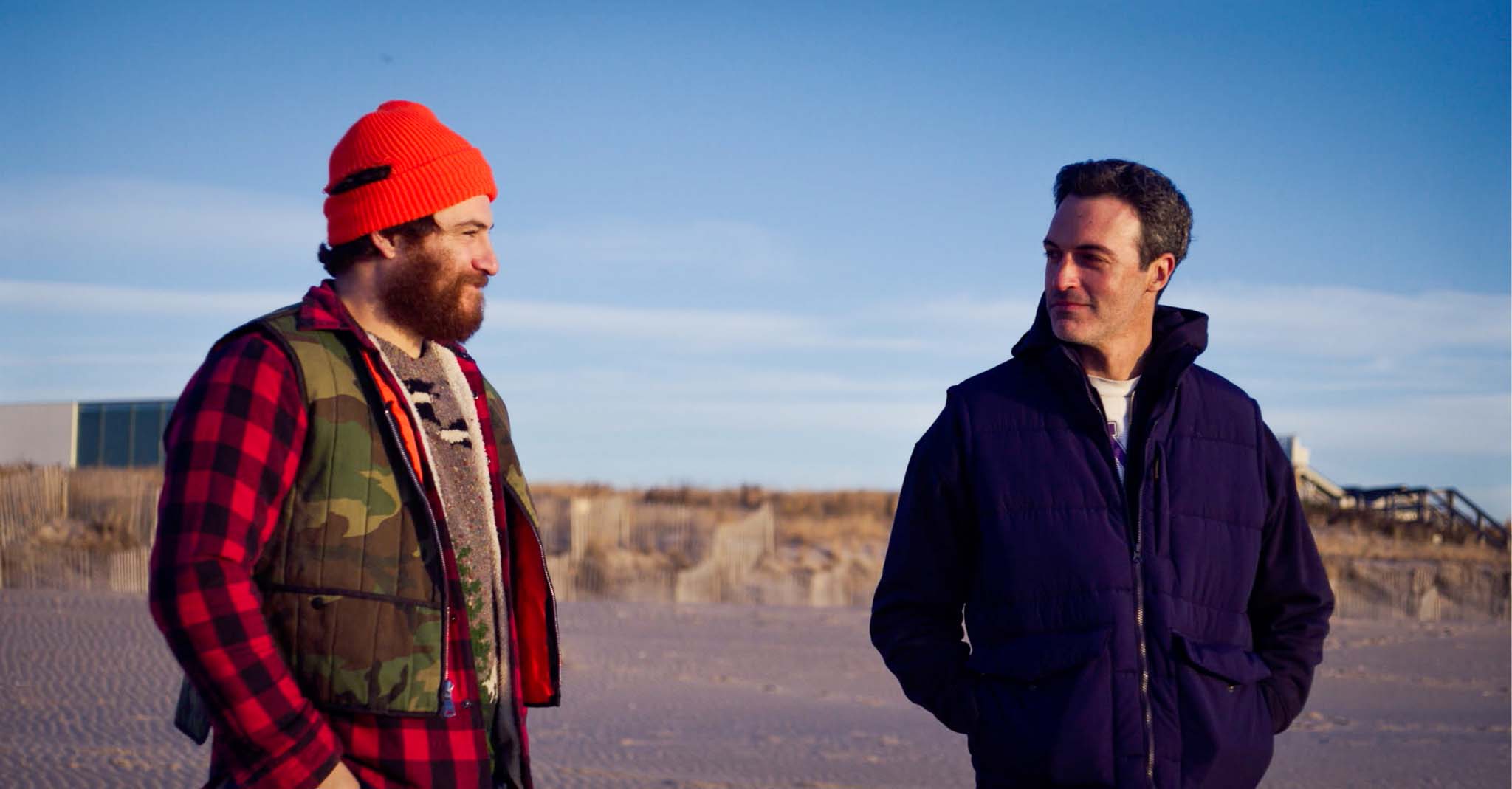
Adam Pally, whose character is Charlie, along with Reid Scott, who plays his friend Phil, in Manrique’s latest film.
LATINNESS: I loved Charlie’s style!
XAVIER: So that came from this Japanese word kintsukuroi (golden repair), an art in which when the pottery breaks, they use a gold-dusted lacquer to repair the broken pieces. I wanted Charlie to be the gold, right? I wanted him to be the loud colors that mend all the broken ceramic pieces.
Everything that Charlie wore was always bright, no matter what. Anyway, there would’ve been a path for fashion if it weren’t for film.
Images courtesy of Xavier Manrique.

